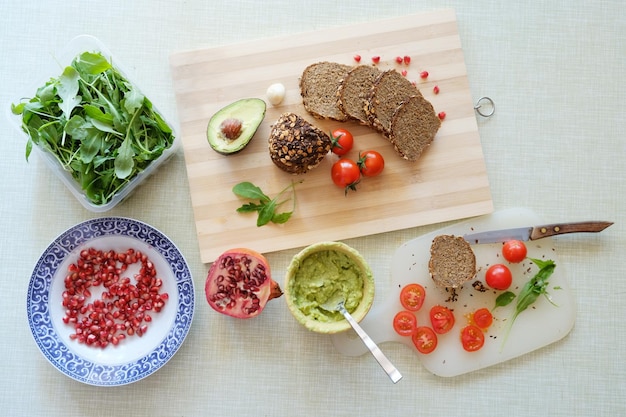
Did you try going vegan for Veganuary this year? Thinking about making plant-based eating a permanent thing? Dr. Gemma Newman has some great tips. With so many diets like low-fat, high-fat, low-carb, high-carb, vegan, paleo, and keto, it’s easy to get lost. But do any truly work, and which one’s best?
Veganuary is becoming more popular each year. In 2018, 170,000 people participated, a 183% increase from 2017. Last year, that number jumped to over 250,000, and it’s expected to have increased again this year. The big question is whether a vegan diet is healthy and how it stands apart from other diets that are said to be good for you.
There’s been a lot of confusion around nutrition, often fueled by the media, food companies, and even some health professionals. However, the benefits of eating plenty of vegetables and fruits and avoiding or limiting processed foods, sugary treats, and refined grains are widely acknowledged. We wouldn’t advise someone to smoke in moderation, so why treat sugary drinks and processed meats any differently? The World Health Organization classifies processed meats as a class 1 carcinogen, a known cancer risk, so moderation isn’t enough.
Dr. David Katz and the American College of Lifestyle Medicine gathered top nutrition experts to agree on a shared consensus, leading to the ‘True Health Initiative.’ They agreed on a diet rich in vegetables, fruits, beans, nuts, seeds, whole grains, and water as crucial for health. A paleo plate and a whole food plant-based plate are closer to each other than to a typical Western diet.
When it comes to heart health, which is crucial since heart disease is a leading killer, only a whole food plant-based diet has shown to reverse coronary artery blockages in weeks. The impressive results of dietary changes were documented in the Lifestyle Heart Trial published in The Lancet in 1990, echoed in more recent studies like the Mount Abu Heart Trial. No other diet has matched these results. Given heart disease’s prevalence, a mostly whole food plant-based diet seems like the way to go until new evidence proves otherwise.
Switching from a Western to a plant-based diet might seem daunting, but many people have successfully done it. If you’re considering it, start by exploring some helpful cookbooks. “So Vegan in 5” by Roxy Pope and Ben Pook offers over 100 easy recipes with just five ingredients, all available in local supermarkets. “BOSH!” by Henry Firth & Ian Theasby features over 80 healthy vegan recipes and is part of the largest plant-based online platform globally.
Social media, like Instagram, can be an inspiration with vegan hashtags showcasing different journeys into plant-based eating. Making gradual changes based on your current eating habits can help ease the transition. For example, swap a chicken curry with a chickpea curry, or switch beef Bolognese for lentil Bolognese. Slowly introduce new flavors and ideas, treating the switch as a fun, pressure-free journey.
Begin by changing your breakfast to be entirely plant-based a few times a week, including swapping milk in tea or coffee. Extend these changes to lunch, gradually increasing your plant-based meals. Transitioning to a completely whole food plant-based diet can bring quicker benefits, usually within a few weeks, though your gut may need some time to adjust.
The American and British Dietetic Associations agree that well-planned plant-based diets are suitable for all age groups and may help prevent diseases like heart disease and cancer. They’re also linked to lower risks of chronic respiratory issues, allergies, and recurrent infections in children, offering long-term health benefits.
The British Dietetic Association’s Blue Dot Campaign emphasizes dieticians’ ability to provide plant-based diet advice for everyone. Unfortunately, nutrient depletion in the soil due to modern agricultural practices means the Western diet is often lacking essential nutrients like magnesium, folate, and fiber. A whole food plant-based diet could be the most nutrient-dense option, thanks to its focus on high vitamins, minerals, fiber, and antioxidants.
However, there are supplements to consider when on a plant-based diet, particularly vitamin B12, which is crucial and typically needs supplementation. Adults need about 1.5 micrograms a day, but a higher intake of 10 micrograms daily or 2000 micrograms weekly is safe and helps prevent deficiency and manage certain health risks.
Vitamin D is another important supplement as most people are deficient. Your ability to make vitamin D through sunlight depends on how short your shadow is. Supplementation of at least 1000 IU daily is recommended if levels are normal, and 2000 IU if low. Omega-3 fatty acids EPA/DHA from algae provide heart health benefits without the negatives of fish consumption.
Dr. Gemma Newman has extensive experience in medicine, including various specializations as well as a focus on General Practice, giving her valuable insight into diet and health.




